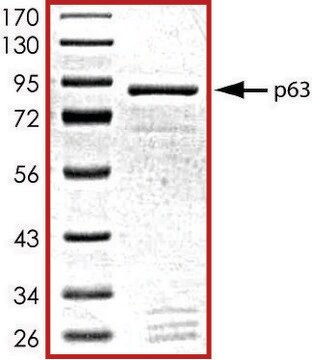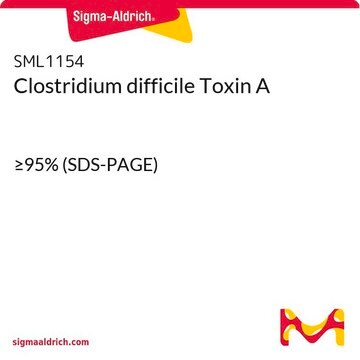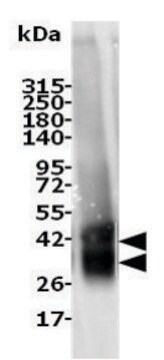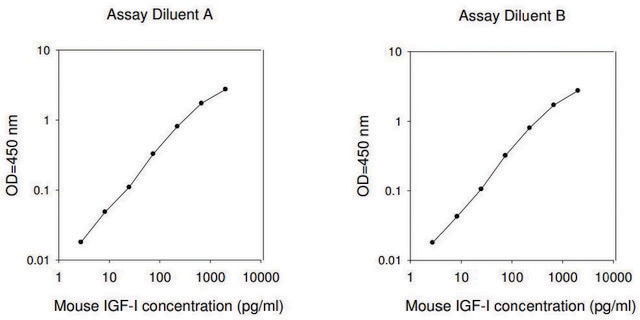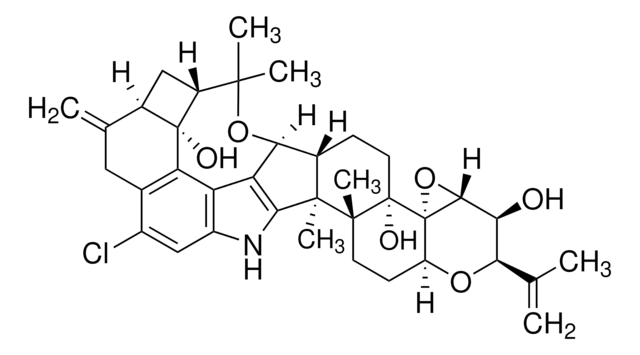SRP5113
p73a, GST tagged human
recombinant, expressed in baculovirus infected Sf9 cells, ≥70% (SDS-PAGE), buffered aqueous glycerol solution
Synonym(s):
TAp73α, TP73
Sign Into View Organizational & Contract Pricing
All Photos(1)
About This Item
Recommended Products
biological source
human
recombinant
expressed in baculovirus infected Sf9 cells
Assay
≥70% (SDS-PAGE)
form
buffered aqueous glycerol solution
mol wt
~110 kDa
NCBI accession no.
application(s)
cell analysis
shipped in
dry ice
storage temp.
−70°C
Gene Information
human ... TP73(7161)
General description
p73α is a member of the p53 family of transcription factors that are involved in cellular responses to stress and development. P73 has high sequence similarity to p53 and p63, which allows p63 and p73 to transactivate p53-responsive genes causing cell cycle arrest and apoptosis. P73 is a stress-response gene and a downstream effector in the p53 pathway. The p73 protein is expressed at very low levels in normal tissues and is differentially expressed in a number of tumors. p73 is the components of a mismatch repair-dependent apoptosis pathway which contributes to cisplatin-induced cytotoxicity.
Physical form
Supplied in 50mM Tris-HCl, pH 7.5, 150mM NaCl, 10mM glutathione, 0.1mM EDTA, 0.25mM DTT, 0.1mM PMSF, 25% glycerol.
Preparation Note
after opening, aliquot into smaller quantities and store at -70 °C. Avoid repeating handling and multiple freeze/thaw cycles
Storage Class Code
10 - Combustible liquids
WGK
WGK 1
Certificates of Analysis (COA)
Search for Certificates of Analysis (COA) by entering the products Lot/Batch Number. Lot and Batch Numbers can be found on a product’s label following the words ‘Lot’ or ‘Batch’.
Already Own This Product?
Find documentation for the products that you have recently purchased in the Document Library.
J G Gong et al.
Nature, 399(6738), 806-809 (1999-07-03)
Cancer chemotherapeutic agents such as cisplatin exert their cytotoxic effect by inducing DNA damage and activating programmed cell death (apoptosis). The tumour-suppressor protein p53 is an important activator of apoptosis. Although p53-deficient cancer cells are less responsive to chemotherapy, their
Jianli Wang et al.
The Journal of biological chemistry, 282(40), 29152-29162 (2007-08-19)
TAp73 is a p53 tumor suppressor gene homologue that is known to be mainly involved in apoptosis. We report here that TAp73 is necessary for the cellular response to oxidative stress and that TAp73 functions as a downstream target of
Our team of scientists has experience in all areas of research including Life Science, Material Science, Chemical Synthesis, Chromatography, Analytical and many others.
Contact Technical Service